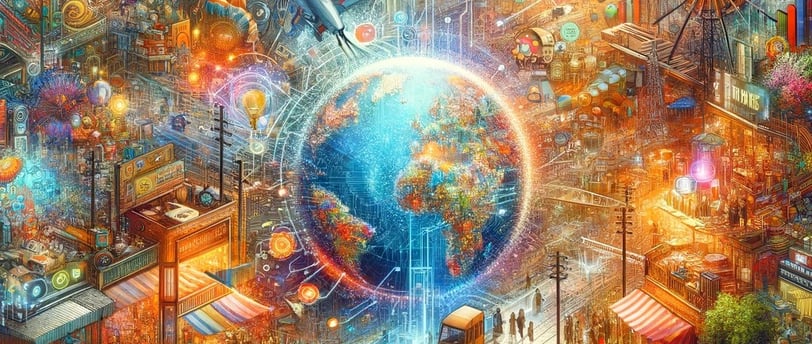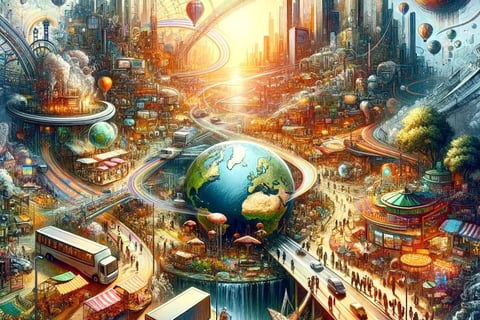BRICS
Emerging Economies on the Global Stage
NEWS


The BRICS nations - Brazil, Russia, India, China, and South Africa - represent a fascinating shift in global economic dynamics. These countries, once seen as mere 'emerging economies,' have now become influential players, challenging the long-established Western dominance in global affairs.
The Rise of BRICS
The combined population of the BRICS nations is a staggering 3.5 billion people, half of the world’s total, with their collective GDP amounting to 26 trillion dollars. This formidable alliance accounts for a significant chunk of global economic activity, a factor that cannot be ignored in international politics.
Political and Economic Aspirations
BRICS countries have been pushing for greater representation in global forums like the UN, G7, and the International Monetary Fund (IMF). Their shared ambition is to reshape global economic governance, making it more inclusive and reflective of current global economic realities.
The Cohesion Challenge
Despite their collective economic might, the BRICS group faces challenges in terms of internal cohesion. Each member nation has its unique political, economic, and geopolitical context. The alliance is more a union of convenience against the Western-dominated global order, rather than a cohesive bloc with shared values or policies.
A Shift from Western Dominance
BRICS nations are united in their opposition to the current global status quo. They seek to build a new world order where emerging economies have a say commensurate with their growing economic clout. This ambition has led to initiatives like the New Development Bank, aimed at fostering economic cooperation independent of Western influence.
BRICS vs. Western Blocs
Contrary to Western alliances like NATO or the EU, BRICS lacks solid treaties or integrated economic and military structures. Their unity is more about diplomatic and economic alignment against Western policies rather than forming a new geopolitical bloc.
Economic and Geopolitical Realities
Despite their aspirations, the BRICS countries have their set of challenges - economic slowdowns, demographic issues, and internal political dynamics. These factors contribute to the complexity of the alliance and sometimes limit its effectiveness in achieving its stated goals.
Looking Ahead: BRICS and the Future of Global Governance
The future of BRICS as a significant influence in global affairs largely depends on how these nations navigate their internal challenges and external diplomatic relationships. Their role in reshaping global governance remains to be seen, but their collective voice is increasingly hard to ignore in the conversation about the future of global economic and political order.
A Changing World Order
The emergence of BRICS on the global stage signifies a shift from a unipolar world dominated by Western powers to a more multipolar world where emerging economies demand their rightful place in global governance. As the world evolves, the influence and role of BRICS will undoubtedly be a crucial factor in shaping the new global order.



